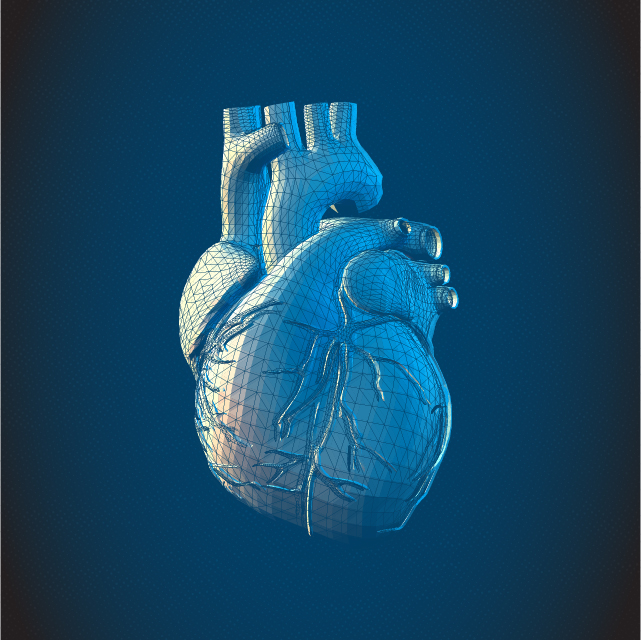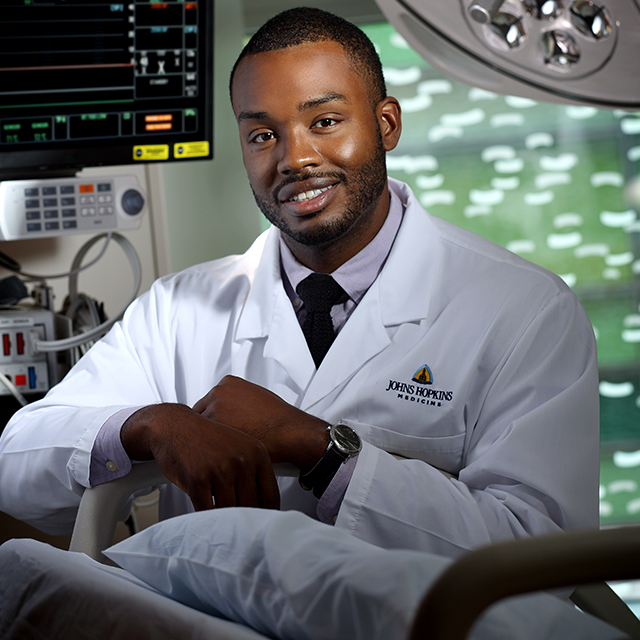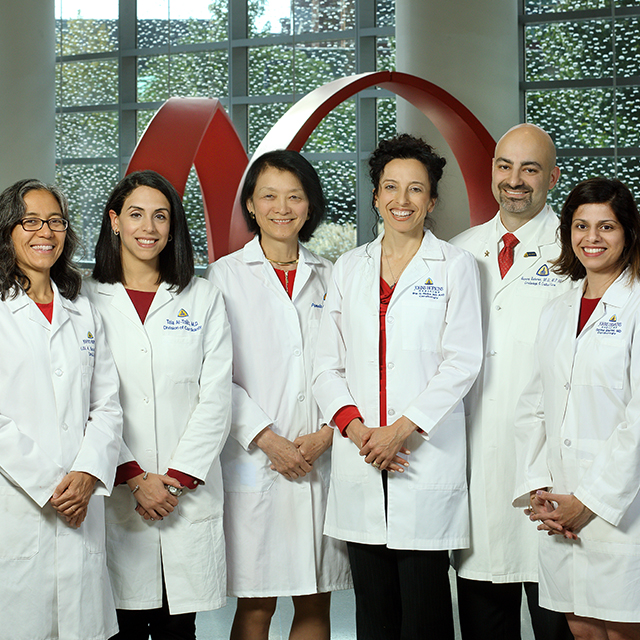Although cancer treatments have improved greatly over the past decade, they can cause side effects and increase the risk of heart disease. For cancer survivors, cardiovascular disease is the leading cause of death, surpassing the risk of mortality from cancer itself. In a recent study led by researchers from The Johns Hopkins University, cancer survivors had a 42% higher risk of developing cardiovascular disease and a 59% higher risk of developing heart failure than patients without prior cancer.
Established in 2020, the Johns Hopkins Cardio-Oncology Program brings together experts in the fields of cardiology and oncology to prevent and treat heart conditions that can develop in patients with cancer or in cancer survivors. Heart conditions in such patients may develop for several reasons. Often, they may result from toxicity due to chemotherapy, radiation or other therapies. Patients with cancer may also have risk factors such as high blood pressure, obesity and diabetes, all of which can further increase the risk of cardiac toxicity and cardiovascular disease. The Johns Hopkins Cardio-Oncology Program fosters management of patients, with streamlined tests and procedures and constant communication between oncology and cardiology providers to ensure optimal care for people with cancer and survivors.
“As the ways in which we treat cancer change, the toxicity of cancer drugs also changes,” says cardiologist Charles Lowenstein, co-director of the Johns Hopkins Heart and Vascular Institute. “Now, there’s really a need for cardiology specialists who understand cancer, its treatments and potential toxicities.”
One example is immune checkpoint inhibitors. These recently developed treatments have changed the landscape of treatment in a variety of cancers, but they also bring potential dangers, says Lowenstein. “When these drugs give permission for the immune system to attack cancer cells,” he says, “they also give permission to attack other parts of the body, such as the kidney, liver or heart. So, in the last three to five years, we’ve seen this whole new therapy that can cause toxicity such as myocarditis [inflammation and damage of the heart muscle].”
The toxicity of chemotherapy can result in a host of harmful or fatal conditions, including high blood pressure, heart failure, coronary artery disease, pericarditis (inflammation of the thin membrane around the heart) and arrythmias (abnormal heart rhythms).
Prevention, Monitoring and Treatment
Identifying patients at risk for cardiotoxicity is a key component in the approach at Johns Hopkins, says cardiologist and heart failure specialist Roberta Florido, director of the Johns Hopkins Cardio-Oncology Program. These patients include those with preexisting cardiac risk factors such as diabetes, hypertension or a history of heart disease. Catching these patients early, providing education on risk-factor modification and a heart-healthy lifestyle, and adjusting medications and treatments can often prevent complications from occurring and reduce the long-term risk of cardiovascular disease.
Another key component of the program is the use of advance imaging to monitor for cardiac complications during cancer treatment. The early identification of signs of toxicity allows for initiation of treatments — often through medications to help mitigate or reverse the toxicity of therapies. “Our goal is for patients to safely complete their cancer therapies, minimizing interruptions while preventing cardiac complications that may arise during treatment or after. We are in constant communication with our colleagues from oncology about our patients,” says Florido.
Patients who receive toxic cancer therapies — including survivors of childhood cancer — have a lifelong risk of heart disease. At Johns Hopkins, these patients are monitored long after completion of cancer therapy for signs of cardiovascular complications.
For prevention, monitoring and treatment of cardiotoxicity, the Johns Hopkins team follows expert consensus protocols set forth by the American Society of Clinical Oncology, the American Heart Association, the American Society of Echocardiography and the European Association of Cardiovascular Imaging, among others, says Florido.
The Johns Hopkins Cardio-Oncology Program provides a comprehensive assessment and diagnostic modalities. Treatments include lifestyle interventions, pharmacotherapy and invasive procedures.
Innovation in Cardiovascular Disease Prevention in Patients with Breast Cancer
The team at Johns Hopkins recently launched a program focused on risk stratification and risk-factor modification through education and pharmacotherapy, with the ultimate goal of reducing the risk of cardiovascular disease in this population. For breast cancer specifically, heart disease accounts for approximately 35% of non-breast cancer mortality for survivors 50 years and older, and is the leading cause of death starting at seven years after cancer diagnosis.
Using artificial intelligence embedded in the Epic electronic medical record platform, Johns Hopkins physicians screen newly referred patients with breast cancer and cardiovascular comorbidities before they start cancer therapies. Those who are interested in joining the program will then be referred for a CT scan to look for calcium in the coronary arteries, an echocardiogram to assess cardiac function, and to a specialized clinic led by Marie Dominque Ashen, nurse practitioner. During their visit, Ashen provides education on healthy lifestyle practices, such as physical activity and diet, and she reviews and advises on other risk factors such as blood pressure and diabetes.
Johns Hopkins oncologist Jenni Sheng, who refers many patients to this program, has seen the benefits when those at the highest risk are referred early. “Every time we promptly identify patients at risk for cardiac complications and refer them to this program, we can initiate preventive measures immediately and start their systemic or local therapy much sooner. That’s impactful because we know that delays in cancer treatment affect survival,” says Sheng. “We are privileged to work with knowledgeable specialists in cardio-oncology and to be part of a multidisciplinary partnership aimed at enhancing patient care and satisfaction.”
Monitoring Lingering Toxicity Dangers for Pediatric Patients
Pediatric patients are especially vulnerable to developing heart disease after initial cancer treatments, and Florido notes that the pediatric and adult cardio-oncology programs at Johns Hopkins ensure both coordinated transitions and continuity of care.



